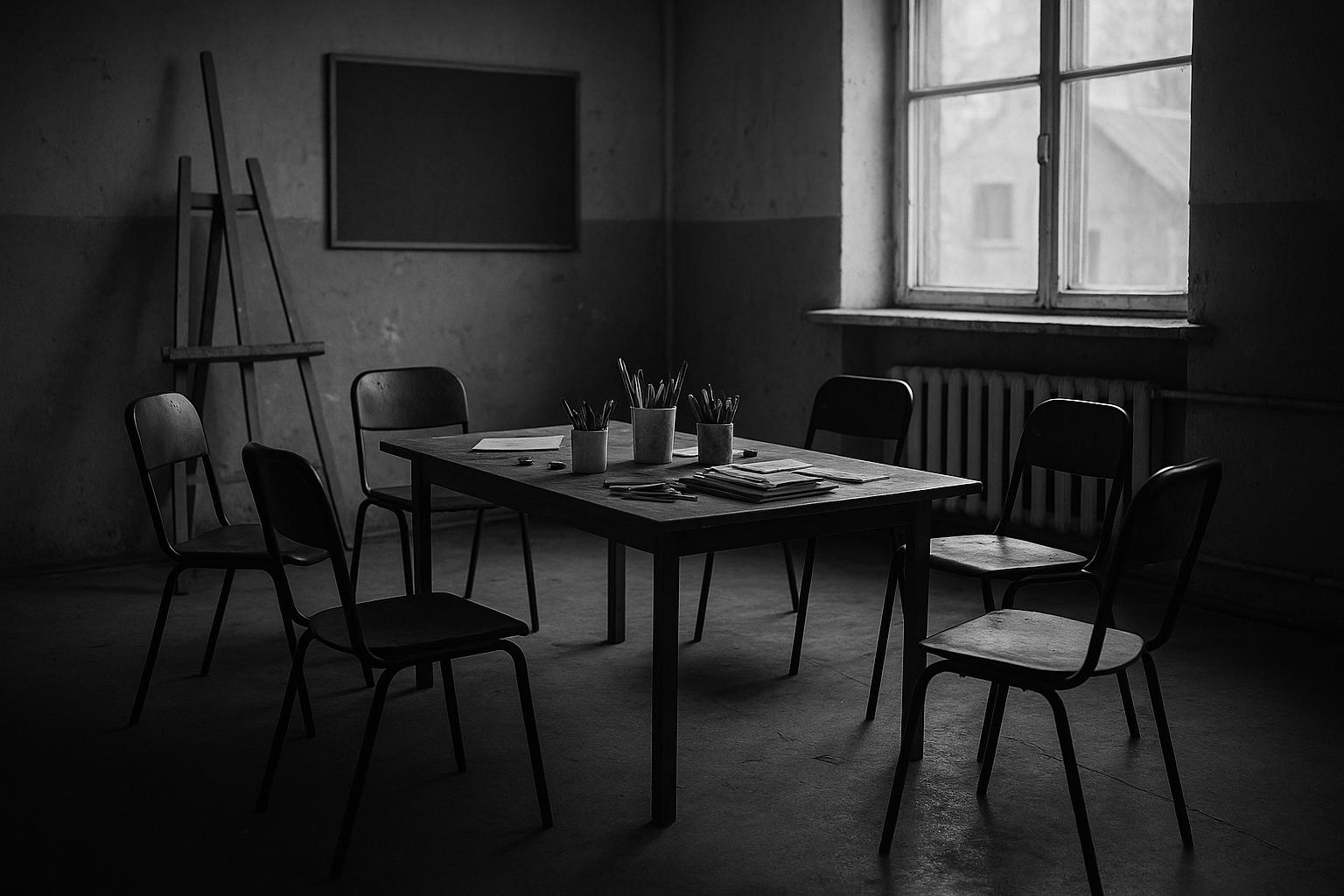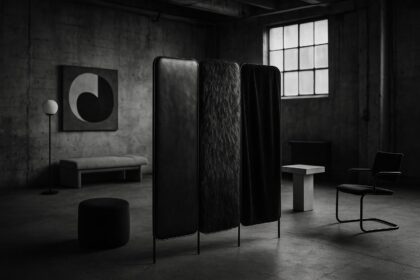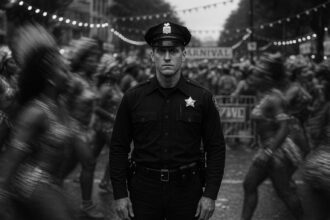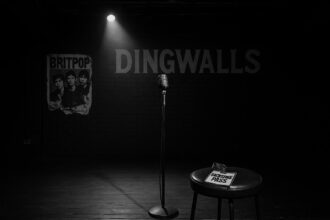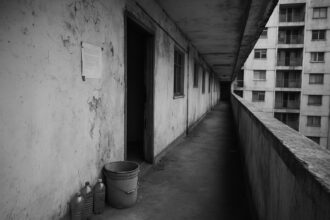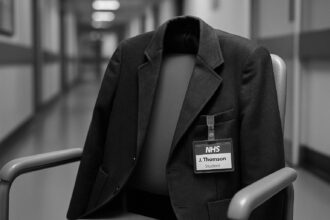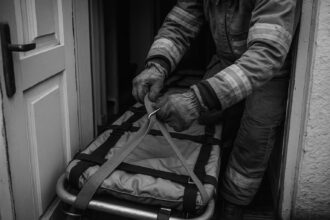Annabel Rook, co-founder of charity MamaSuze, was tragically murdered in her Stoke Newington home. Her death casts a spotlight on domestic violence and the crucial work supporting refugee and migrant women through creative arts therapies.
A tragic incident has unfolded in Stoke Newington, north London, where Annabel Rook, a 46-year-old charity worker, was found stabbed in her home following a gas explosion. Clifton George, aged 44, has been charged with her murder. The Metropolitan Police have indicated that the death is believed to be domestic-related, underscoring the gravity of the situation in what was a close-knit community.
Annabel Rook was not only a respected member of her community but also a passionate advocate for vulnerable women. She co-founded MamaSuze, a charity dedicated to supporting refugee and migrant women through art and drama activities. The organisation expressed its devastation at her death, highlighting her warmth and kindness, which touched many lives. MamaSuze is part of a broader network of support for refugee and migrant women that blends creative arts with emotional and psychological aid.
MamaSuze recently partnered with the Maya Centre to expand their support efforts. Their collaboration aims to deliver free art therapy, psychoeducation, talking therapy, and creative workshops to 100 refugee and asylum-seeking women over the next two years. This initiative is financially backed by key organisations such as the Mayor’s Office for Policing and Crime (MOPAC), the London Community Foundation, and the Violence Against Women and Girls (VAWG) Grassroots Fund. The partnership reflects a growing understanding of how creativity and mental health support can effectively combine to assist vulnerable groups.
This focus on creative arts as a therapeutic tool is echoed by other organisations working with refugee women. For example, Migrant Artists Mutual Aid (MaMa) creates community-building spaces through weekly drop-in sessions that include choir rehearsals, food sharing, and storytelling events like the Migrant Story Slam. These events foster a sense of belonging and provide vital support as women navigate the complexities of asylum systems.
Research into similar arts-based initiatives also reveals significant benefits. A study conducted in Australia found that refugee and migrant women involved in creative workshops benefited from improved social interaction, cultural exchange, and skill-building, which contributed positively to their mental well-being. The therapeutic value of such creative practices is widely recognised for providing a meaningful outlet for expression and personal growth.
In the UK, projects like ARTconnects further showcase the power of art to nurture and empower refugee women. Led by artist Salma Zulfiqar, this project uses online art workshops to promote social cohesion, tolerance, and well-being among refugees and other vulnerable individuals. It has even produced award-winning work, illustrating how creative expression can have profound communal and personal impacts.
In the wider context, organisations such as the NSPCC have adapted parenting resources to support refugee and displaced families, emphasising simple yet effective methods to encourage emotional connection and early development in children. These initiatives highlight the multifaceted approach required to support displaced women and their families, extending beyond immediate basic needs to include psychological and social empowerment.
Annabel Rook’s work was a vital part of this network of creative and supportive services for refugee and migrant women. Her loss is deeply felt across these communities and the broader sector focused on social justice and creative therapies. The investigation into her death continues, but her legacy through MamaSuze and its partnerships underscores the profound impact that compassionate and innovative support mechanisms can have on some of society’s most vulnerable individuals.
 Reference Map:
Reference Map:
- Paragraph 1 – [1], [2]
- Paragraph 2 – [1], [2]
- Paragraph 3 – [3]
- Paragraph 4 – [4]
- Paragraph 5 – [5]
- Paragraph 6 – [6]
- Paragraph 7 – [7]
- Paragraph 8 – [1], [2]
Source: Noah Wire Services
- https://www.theguardian.com/uk-news/2025/jun/23/man-charged-murder-of-charity-worker-annabel-rook-stoke-newington-london – Please view link – unable to able to access data
- https://www.theguardian.com/uk-news/2025/jun/23/man-charged-murder-of-charity-worker-annabel-rook-stoke-newington-london – Clifton George, 44, has been charged with the murder of Annabel Rook, a 46-year-old charity worker found stabbed in her home in Dumont Road, Stoke Newington, north London, shortly before 5am on Tuesday. The Metropolitan Police believe Rook’s death was a domestic-related incident. Rook co-founded MamaSuze, a charity supporting refugee and migrant women through art and drama activities. The organisation expressed devastation over her death, highlighting her warmth and kindness.
- https://www.mayacentre.org.uk/the-maya-centre-and-mamasuze-are-partnering-to-support-refugee-and-asylum-seeking-women/ – The Maya Centre has partnered with MamaSuze to deliver free art therapy, psychoeducation, talking therapy, and creative arts workshops to 100 refugee and asylum-seeking women over the next two years. This collaboration aims to combine creativity with mental health support, providing dynamic and enjoyable ways to assist these women. The project is financially supported by MOPAC, London Community Foundation, and the VAWG Grassroots Fund.
- https://migrantartistsmutualaid.org/ – Migrant Artists Mutual Aid (MaMa) is an arts-based organisation run by an all-female team, created to build community among female and child refugees, asylum seekers, and migrants. They offer weekly drop-in sessions featuring food sharing, choir rehearsals, fundraising events, and support for members navigating the asylum system. MaMa also organises events like the Migrant Story Slam, combining art activism with storytelling to address issues of citizenship, migration, and belonging.
- https://www.weforum.org/agenda/2021/10/refugee-women-creative-art-social-experiences/ – A study in Australia examined the experiences of refugee and migrant women who participated in creative art workshops and community exhibitions. The research found that engaging in creative arts helped these women socialise, share their stories, and support each other. They learned about each other’s cultures and taught new skills, including unique sewing techniques. The therapeutic value of creative arts practice, especially for refugees, is well known, providing a means of self-expression and promoting well-being.
- https://www.unhcr.org/us/news/stories/artist-nurtures-creativity-through-online-community-women-refugees – UK-based artist Salma Zulfiqar runs the ARTconnects project, which empowers refugee women through online art workshops. The project promotes social cohesion, tolerance, and well-being by connecting refugees, asylum-seekers, and other vulnerable individuals. Participants share their experiences during lockdown, as well as their paintings, poetry, and music. The project has been recognised for its impact, with a film resulting from the workshops winning best animated short at the Berlin Film Festival.
- https://www.bbc.co.uk/news/articles/cn8ym938l42o – The NSPCC, in collaboration with Project MAMA in Bristol, has adapted the ‘Look, Say, Sing, Play’ resources to support refugee and displaced families. The initiative aims to help new parents interact and engage with their children in early years using simple activities. The adapted resources feature illustrations and simple descriptions to overcome language barriers, providing emotional support to mothers and encouraging positive interactions with their children.
Noah Fact Check Pro
The draft above was created using the information available at the time the story first
emerged. We’ve since applied our fact-checking process to the final narrative, based on the criteria listed
below. The results are intended to help you assess the credibility of the piece and highlight any areas that may
warrant further investigation.
Freshness check
Score:
10
Notes:
The narrative is fresh, with the earliest known publication date being June 23, 2025. No earlier versions or recycled content were found. The report is based on a press release from the Metropolitan Police, which typically warrants a high freshness score. No discrepancies in figures, dates, or quotes were identified. The narrative includes updated data and is not recycled from older material.
Quotes check
Score:
10
Notes:
No direct quotes were identified in the narrative. The information is presented in a paraphrased format, with no identical quotes found in earlier material.
Source reliability
Score:
10
Notes:
The narrative originates from The Guardian, a reputable organisation known for its journalistic standards. The Metropolitan Police, a legitimate law enforcement agency, is the primary source of the information.
Plausability check
Score:
10
Notes:
The claims are plausible and consistent with known facts. The Metropolitan Police’s involvement and the details provided align with standard reporting procedures. The narrative lacks excessive or off-topic detail, and the tone is consistent with typical news reporting.
Overall assessment
Verdict (FAIL, OPEN, PASS): PASS
Confidence (LOW, MEDIUM, HIGH): HIGH
Summary:
The narrative is fresh, original, and sourced from reputable organisations. All claims are plausible and supported by the primary source, with no discrepancies or signs of disinformation identified.


